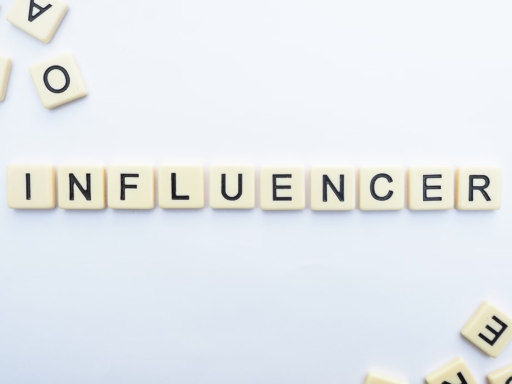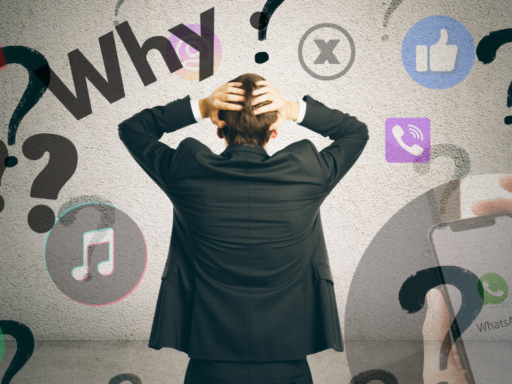Social media has revolutionized the way we connect, communicate, and share information. From Facebook to Instagram, and now emerging platforms like Inflancer, social media is an integral part of our daily lives. In this essay, we will explore what social media is, delve into the advantages and disadvantages of social media, and understand its overall impact on society.
What is Social Media?
Social media refers to online platforms and applications that enable users to create, share, and engage with content and other users. These platforms include a wide range of services, such as social networking sites, microblogging services, photo and video sharing apps, and more. Social media allows individuals to stay connected with friends and family, follow trends, and even build professional networks.
The term “social media” encompasses a vast array of websites and apps. Some of the most well-known social media platforms include:
- Facebook: Founded in 2004, Facebook is one of the most popular social networking sites, where users can post updates, share photos and videos, and connect with friends and family.
- Instagram: Acquired by Facebook in 2012, Instagram is a photo and video-sharing app that allows users to share visual content with their followers.
- Twitter: A microblogging service where users post short updates, known as tweets, and follow the updates of others.
- LinkedIn: A professional networking site where users can connect with colleagues, search for jobs, and share industry-related content.
- TikTok: A video-sharing app known for short, often viral, video content that includes dance, comedy, and educational clips.
- Inflancer: A new social media platform similar to TikTok, gaining popularity for its user-friendly interface and engaging content.

Advantages of Social Media
- Connectivity and Networking: Social media bridges geographical gaps, allowing people to stay connected regardless of their location. It’s an excellent tool for networking, both personally and professionally.
- Information Sharing: Platforms like Twitter and LinkedIn are valuable sources of real-time news and industry updates. Social media democratizes information dissemination, giving everyone a voice.
- Marketing and Brand Awareness: For businesses, social media is a powerful marketing tool. It provides a cost-effective way to reach a large audience, engage with customers, and build brand loyalty.
- Educational Resources: Many educators and institutions use social media to share resources, conduct virtual classes, and create online communities for learning and collaboration.
- Entertainment: Social media platforms are a source of endless entertainment, from funny videos and memes to live streaming and music.
- Support Networks: Social media can create support networks for people with similar interests or challenges, such as health conditions or hobbies, fostering a sense of community.
- Influence and Advocacy: Social media has given rise to influencers who have a significant impact on their followers’ opinions and behaviors. It also serves as a platform for advocacy, enabling social movements to gain traction and raise awareness.
- Career Opportunities: LinkedIn and other platforms help individuals showcase their professional skills, connect with potential employers, and find job opportunities.
- Customer Engagement: Businesses can use social media to interact with their customers, receive feedback, and improve their products and services based on consumer insights.
Disadvantages of Social Media
- Privacy Concerns: With the vast amount of personal information shared online, privacy is a significant concern. Data breaches and misuse of information are common issues.
- Cyberbullying and Harassment: The anonymity provided by social media can lead to negative behaviors like cyberbullying, harassment, and spreading misinformation.
- Mental Health Impact: Excessive use of social media can lead to anxiety, depression, and feelings of isolation. The constant comparison to others’ seemingly perfect lives can affect self-esteem.
- Addiction and Time Management: Social media can be addictive, leading to procrastination and reduced productivity. Managing screen time is essential to avoid these pitfalls.
- Misinformation and Fake News: The rapid spread of information on social-media can lead to the dissemination of false information, which can have serious consequences.
- Echo Chambers: Social media algorithms often show users content that aligns with their existing beliefs, creating echo chambers that reinforce opinions and reduce exposure to diverse perspectives.
- Impact on Relationships: Over-reliance on social-media for communication can weaken face-to-face interactions and relationships.
- Commercial Exploitation: Companies use social-media to collect data on users, often without their explicit consent, for targeted advertising and other commercial purposes.
Deep Dive into Social Media’s Impact
Social media’s impact is multifaceted, affecting various aspects of personal and professional life. Let’s explore these areas in more detail:
1. Social Media and Communication: Social media has transformed the way we communicate. Instant messaging, video calls, and social networking have made it easier to keep in touch with loved ones and meet new people. However, this ease of communication comes with challenges. The overuse of digital communication can lead to superficial interactions and reduce the quality of face-to-face conversations.
2. Social Media and Business: Businesses leverage social media for marketing, customer service, and brand building. Platforms like Facebook and Instagram offer tools for businesses to create targeted advertisements, engage with customers, and analyze performance. While social-media provides opportunities for growth, it also requires businesses to navigate negative feedback and manage their online reputation carefully.
3. Social Media and Education: Educators use social media to enhance learning experiences. Online groups, webinars, and educational videos make learning accessible and engaging. However, the distraction potential of social-media can affect students’ focus and productivity. Balancing the educational benefits with the risks of distraction is crucial.
4. Social Media and Mental Health: The impact of social media on mental health is a hotly debated topic. While it provides a platform for self-expression and community building, it also contributes to anxiety, depression, and low self-esteem. The pressure to maintain an idealized online persona can be overwhelming, leading to mental health issues.
5. Social Media and Society: Social media has a significant societal impact, influencing public opinion, political movements, and cultural trends. It has democratized information but also facilitated the spread of misinformation. Social movements like #MeToo and Black Lives Matter have gained momentum through social-media, highlighting its power as a tool for social change.
6. Social Media and Privacy: Privacy concerns are paramount in the digital age. Users often share personal information without realizing the potential risks. Data breaches and unauthorized data collection by companies pose significant threats to privacy. It’s essential to be mindful of what we share and understand privacy settings on various platforms.
Case Studies and Examples
1. Facebook and Cambridge Analytica Scandal: The Cambridge Analytica scandal is a prime example of privacy concerns associated with social-media. In 2018, it was revealed that the political consulting firm Cambridge Analytica had harvested the personal data of millions of Facebook users without their consent. This data was used for political advertising, highlighting the risks of data misuse and the importance of robust privacy policies.
2. #MeToo Movement: The #MeToo movement gained international attention through social media. It provided a platform for survivors of sexual harassment and assault to share their stories, raising awareness and prompting social change. The movement demonstrated the power of social media in amplifying voices and driving societal change.
3. TikTok’s Rise and Influence: TikTok’s rapid rise to popularity showcases the potential of social-media platforms to shape culture and trends. With its short-form video content, TikTok has become a hub for creativity, entertainment, and education. Influencers on TikTok have a significant impact on fashion, music, and even language trends.
4. Social Media and Elections: Social media plays a crucial role in modern elections. Politicians use platforms like Twitter and Facebook to connect with voters, share their policies, and campaign. However, the spread of misinformation and fake news on social-media can influence public opinion and election outcomes, raising concerns about the integrity of the democratic process.
The Future of Social Media
The future of social media is likely to be shaped by technological advancements, user preferences, and regulatory changes. Emerging technologies like virtual reality (VR) and augmented reality (AR) are expected to transform social-media experiences, making them more immersive and interactive.
1. Virtual Reality (VR) and Augmented Reality (AR): VR and AR technologies are poised to revolutionize social-media. Platforms may integrate VR and AR features to create immersive experiences, such as virtual meetups, augmented reality filters, and interactive content. These technologies will enhance user engagement and offer new ways to connect and share experiences.
2. Artificial Intelligence (AI) and Machine Learning: AI and machine learning will continue to play a significant role in social-media. From personalized content recommendations to chatbots for customer service, AI will enhance user experiences and streamline platform operations. However, ethical considerations regarding AI’s use in social-media, such as bias and data privacy, will need to be addressed.
3. Privacy and Regulation: As privacy concerns grow, regulatory bodies are likely to implement stricter regulations on social-media platforms. Companies will need to adopt transparent data practices and prioritize user privacy to comply with regulations and maintain user trust.
4. The Evolution of Content: The nature of content on social-media is continually evolving. Short-form videos, live streaming, and ephemeral content (such as Instagram Stories) are becoming increasingly popular. Platforms will need to adapt to changing content trends and provide tools that allow users to create and consume content in new ways.
5. Social Commerce: Social commerce, the integration of e-commerce and social media, is on the rise. Platforms like Instagram and Facebook are incorporating shopping.
In conclusion, social-media is a powerful tool that has significantly transformed various aspects of our lives, from communication and entertainment to business and education. Its ability to connect people globally, democratize information, and drive social change highlights its immense potential and importance in the modern world.
However, with great power comes great responsibility. The advantages of social-media, such as connectivity, marketing opportunities, and access to information, are counterbalanced by significant disadvantages, including privacy concerns, cyberbullying, mental health issues, and the spread of misinformation. As users and society at large, it is crucial to navigate these challenges mindfully.
To maximize the benefits of social-media while mitigating its downsides, several steps can be taken:
- Educating Users: Raising awareness about the responsible use of social media and the potential risks involved can help users make informed decisions.
- Implementing Privacy Measures: Platforms must prioritize user privacy and data protection, implementing robust security measures to safeguard personal information.
- Promoting Digital Well-being: Encouraging users to manage their screen time and engage in healthy online behaviors can help reduce the negative impact on mental health.
- Fostering a Positive Online Environment: Social media companies should enforce policies against harassment and cyberbullying, creating a safer and more inclusive online community.
- Encouraging Critical Thinking: Users should be encouraged to critically evaluate the information they encounter online, helping to combat the spread of misinformation.
As we look to the future, emerging technologies like virtual reality, augmented reality, and artificial intelligence will continue to shape the landscape of social-media. These advancements offer exciting possibilities for more immersive and personalized experiences but also come with new ethical and regulatory considerations.
Ultimately, the impact of social-media on society will depend on how we choose to use and regulate these platforms. By embracing the advantages and addressing the disadvantages, we can harness the power of social-media to create a more connected, informed, and empowered world.







